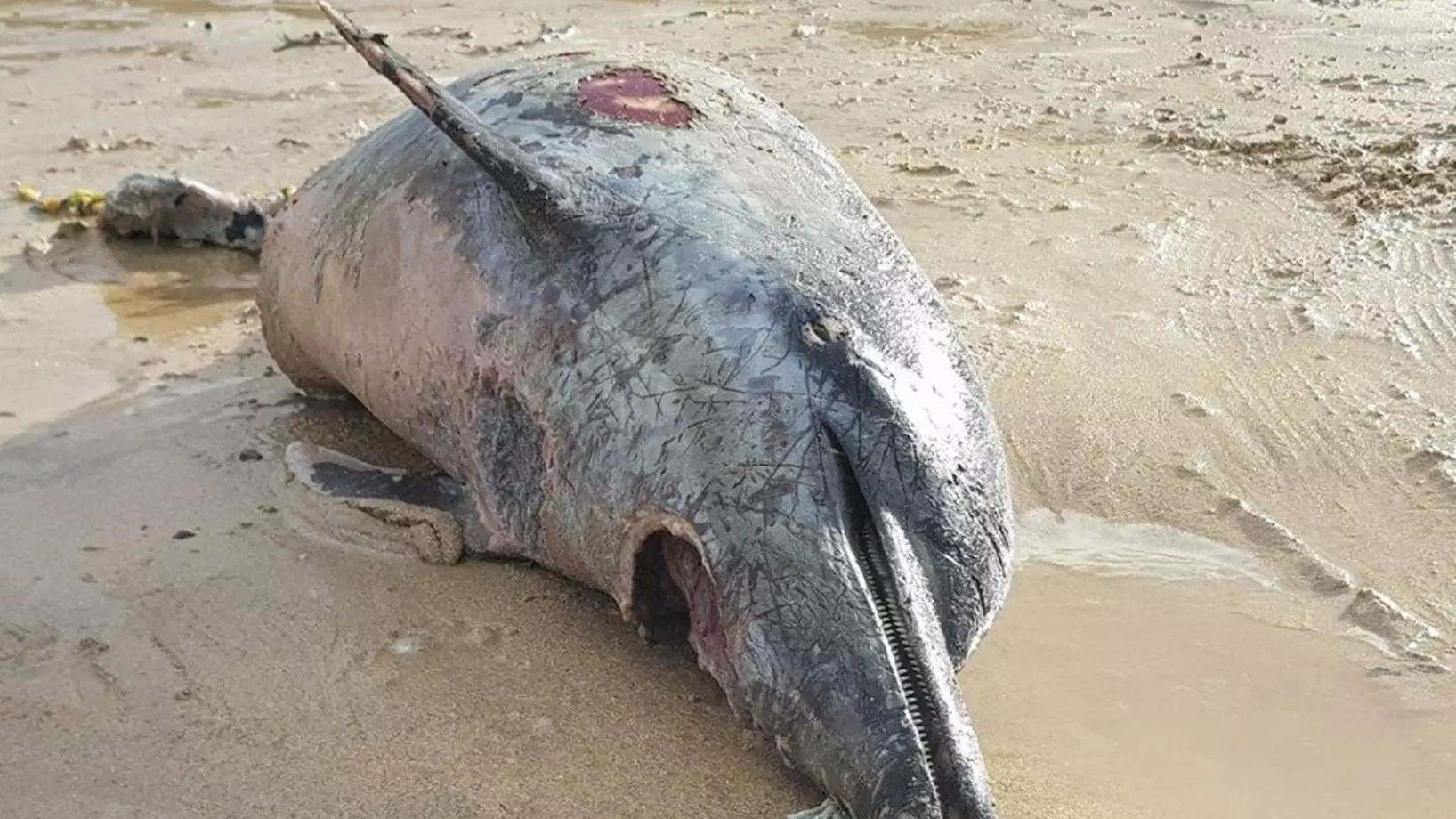
WARNING: GRAPHIC FISHY PICTURES LIE AHEAD BUT... NATURE AND ALL THAT.
Locals fear a massive shark may be lurking somewhere along the British coast after a dead dolphin washed up - which looks like it was bitten in half.
Gruesome pictures show the upper half of the dead dolphin - the bottom half is completely missing. There appears to be bite marks from huge teeth.
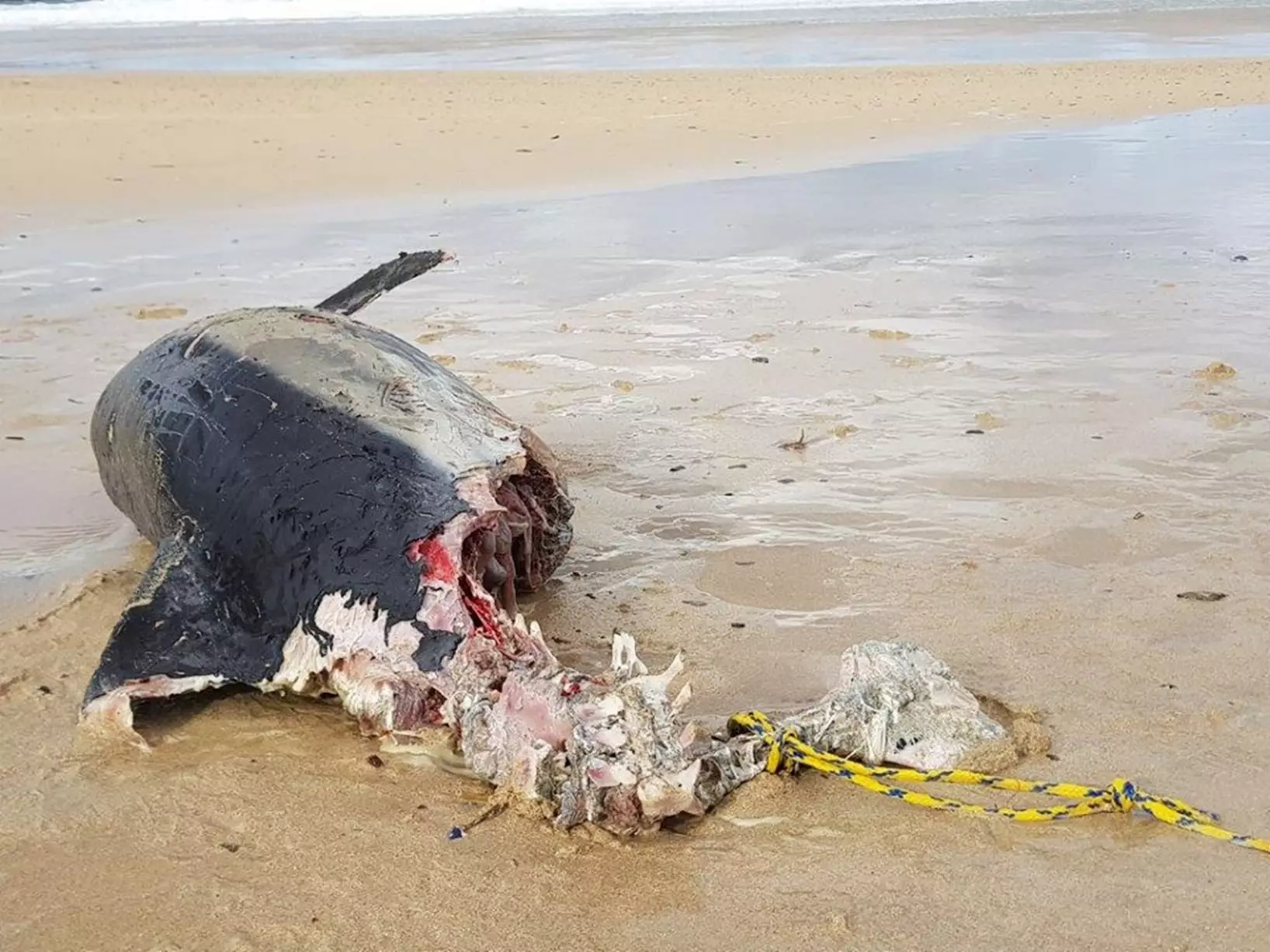
Onlookers said they believed the state of the dolphin's remains on Harlyn Bay, near Padstow in Cornwall, could have been the result of an attack by a shark.
Advert
Rumours of a great white shark stalking Britain have been rife for years. Earlier this year, fishermen from Devon said they had seen them stalking the South Coast.
One witness, who came across the mutilated carcass, said: "My initial thought when I saw it was a shark attack.
"You can see what looks like teeth marks and I just can't think of anything else that could have done this. It is terrifying if true. The flesh wouldn't have just rotted away like that."
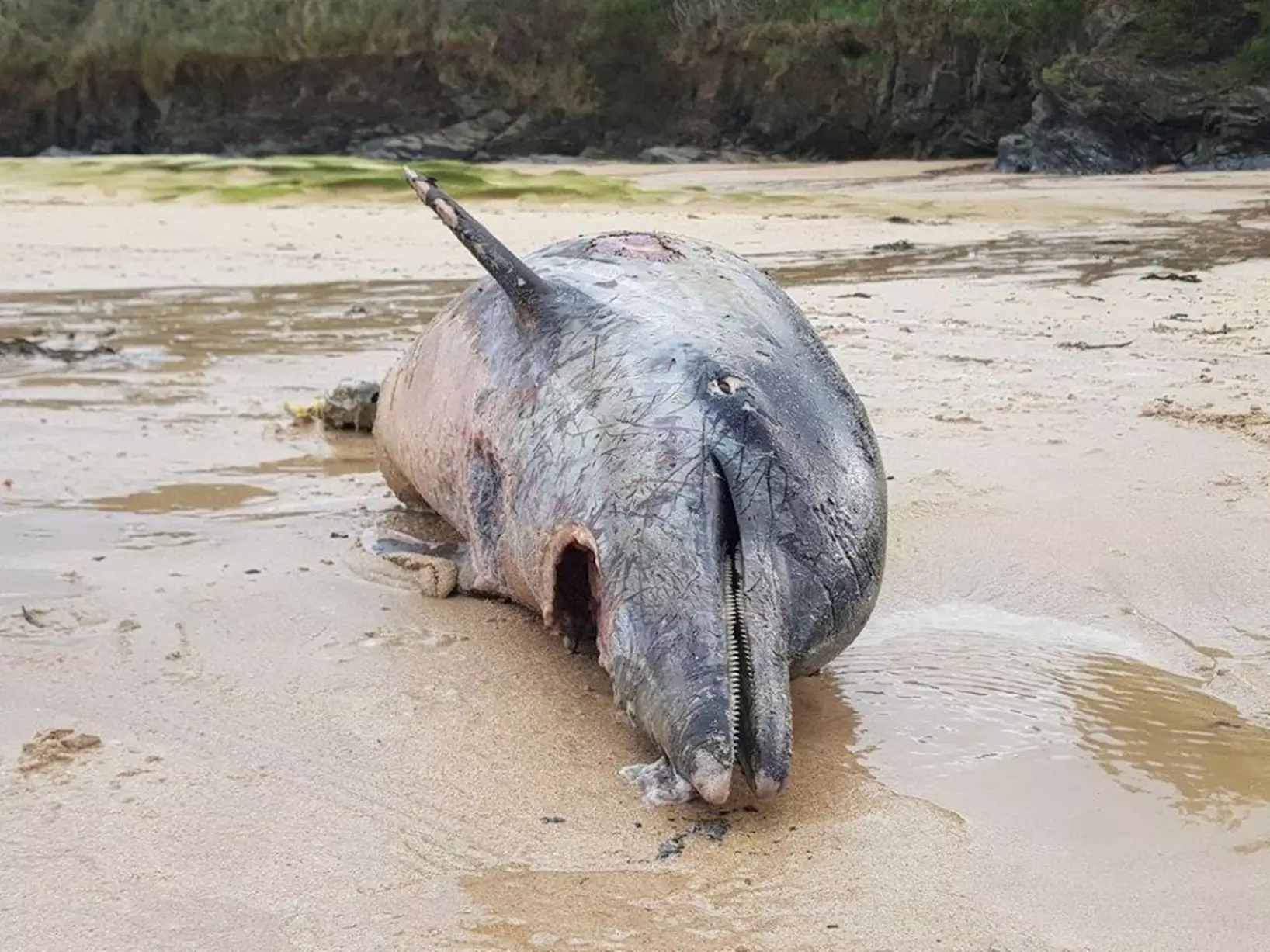
Pictures of the grim discovery were made by Rob Stevenson from local community interest company Beach Guardian CIC.
Advert
He said: "We do regular beach cleans from Padstow to Porthcothan and people locally contact us if they find any ropes, nets etc.
"One of our volunteers was dog walking on Harlyn Bay when they saw it in the water and took a photo and sent it over so I went down for a look. The tide has now retreated so it's sitting at the high tide mark.
"We want to make people aware there's a dead dolphin on the beach, particularly dog walkers as a lot of inquisitive dogs will go over for a look.
"It's a sad picture and terrible to see but we can't really speculate as to how it died."
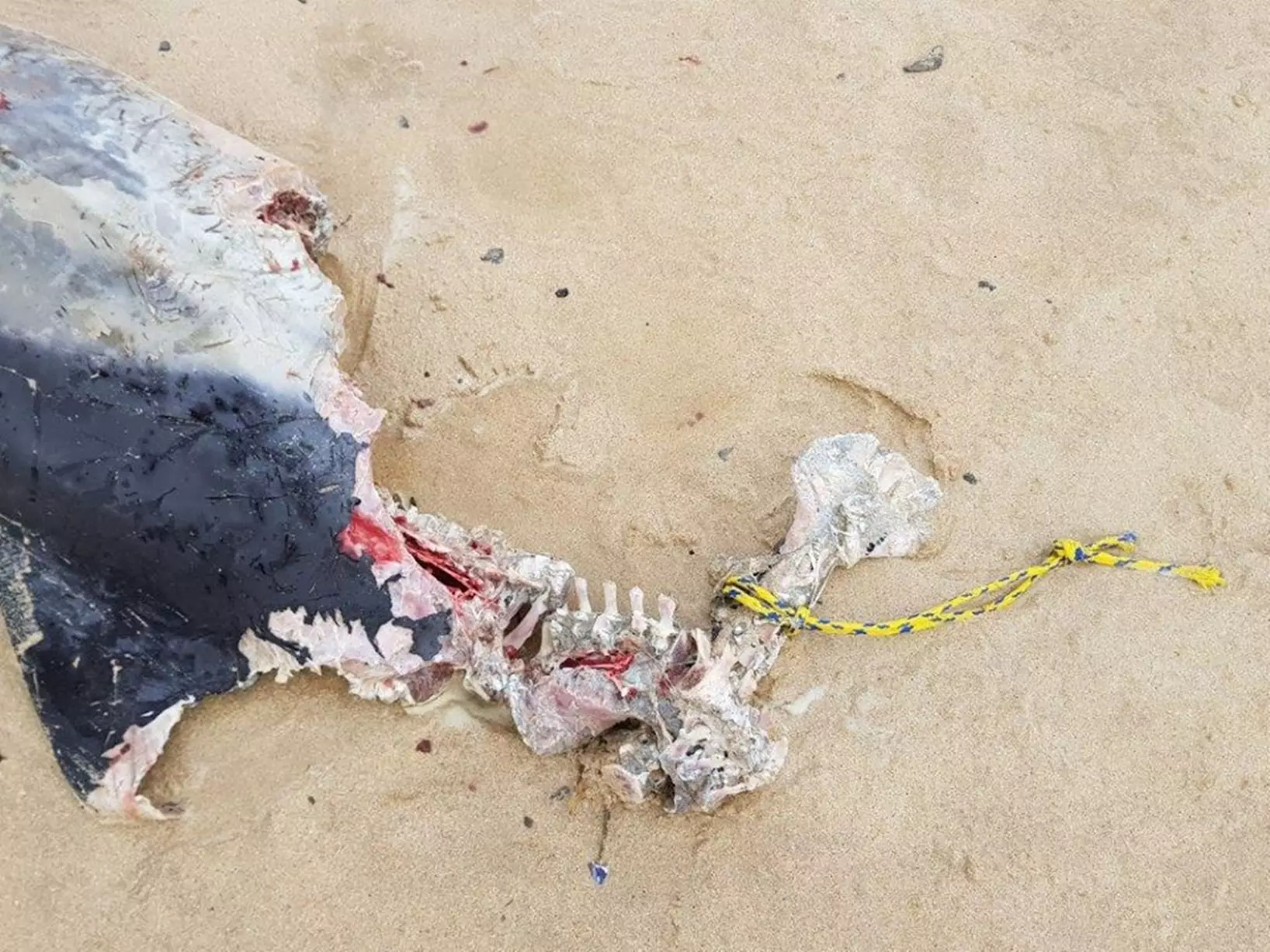
Regarding a piece of tape attached to the remnants of the dolphin's tail, Rob said that it could be from a previous rescue attempt at another beach.
Advert
He said Beach Guardian CIC have recently had an increased number of calls due to the adverse weather.
He added: "The extreme weather has definitely been making things worse. We've had more nets and ropes reported and this is the second dead dolphin we've been told about in two weeks."
The find was reported to the Marine Strandings Network. A spokesperson told LADbible: "Although the images do look horrific, it would be impossible to conclude that the animal was killed by a shark attack.
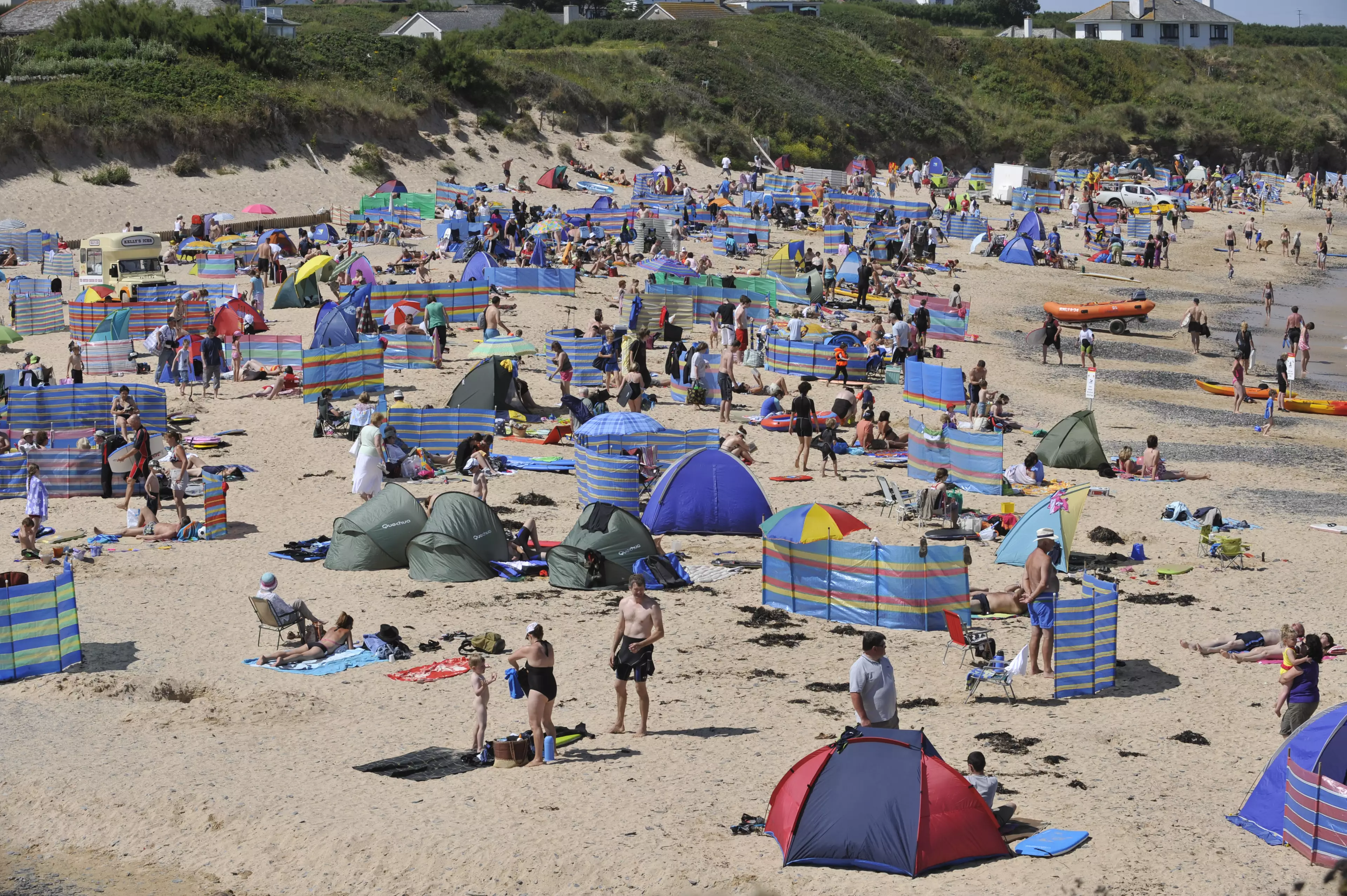
"Looking at the state of decay of the animal, it has clearly been in the water dead for a long time. The damage is most likely to be caused by scavengers after the animal has died. Blue sharks, seabirds and seals are all capable of causing similar damage on an animal of this size.
Advert
"Cornwall Wildlife Trust's Marine Strandings project investigates all stranded marine animals reported in Cornwall and all stranded animals are assessed by experts. Unfortunately this animal is not fresh enough for post mortem, and is in such a bad state that establishing a cause of death would be near impossible.
"We do know, however, that these creature such as dolphins can strand for a variety of reasons, from accidental by catch in fishing nets, to natural diseases or even boat strike.
"What is important is for the public to call our 24 hour hotline, 0345 2012626, when they discover any dead stranded animal along our coastline so we can gather important data, to use in our work to better protect these amazing creatures in our waters."
Featured Image Credit: SWNSTopics: UK News, cornwall, News, Animals, dolphin, Nature, shark